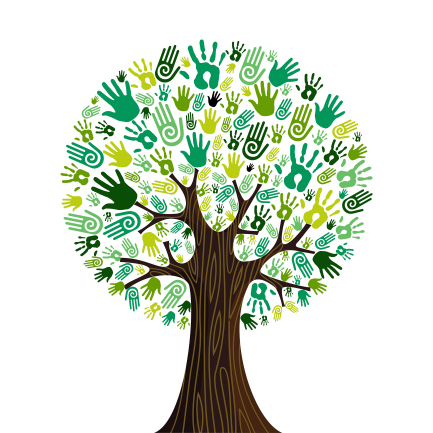
Underneath the political and economic discontent in the Mideast right now is also profound social unrest. The case for how new social enterprises could contribute to regained stability.
The tremors shaking the Middle East have not fully subsided, but the ominous question already looms: What comes next? Much of the media focus has been on political reform, as tyrants are toppled and drama unfolds with the suspense of a Hollywood movie, but the demands of protestors have been clear: They want political and economic reform. Very little attention, as yet, has been paid to the latter, which is undoubtedly more elusive for sound bites but will prove to be a much more urgent and powerful demand in the coming months.
Economics and demographics are two of the most potent factors contributing to the recent eruption and they, too, will determine the best solutions for moving forward. Among the Middle East and North Africa (MENA) countries, on average more than 50 percent of the population is younger than 25. Within this demographic group, the unemployment rate averages about 40 percent. Combine this with a relatively high literacy rate—almost 80 percent for the regional average and more than 90 percent in several countries—and you have a perfect recipe for frustration and anger: young, educated people without jobs.
The countries these youth are rattling are not just suffering from decades of political hegemony, but also suffer from long-term economic stagnation. Corrupt and stifling government bureaucracies have strangled most formal enterprise and forced the rest into a vibrant but restrictive informal economy. The World Bank’s Doing Business 2011 report found that it takes an average of 20 days and 38 percent of per-capita income to start a business in the MENA region.
At the same time, underneath the political and economic discontent is also profound social unrest. The region is plagued by extreme economic inequality, which often follows racial, cultural, and religious lines. Gender inequality, pervasive discrimination, and intolerance have contributed substantially to deep fractures and mounting pressures in the social fabric.
Social entrepreneurship can be a powerful solution for the MENA region. By blending both financial sustainability (profits) with a prioritization of social impact, social enterprises will contribute to both economic revitalization and social reconstruction. Social entrepreneurship is also particularly well suited to youth. It not only taps into the desire for independence and self-actualization, but it is also relevant for a generation whose worldview incorporates a sense of responsibility that goes significantly beyond immediate family and self.
Social entrepreneurship provides a “third way” that can productively balance the desire for greater social equity with the need for rapid economic growth. At the macroeconomic level, social entrepreneurship deploys a stakeholder model that not only provides more robust checks-and-balances in the system but also more fairly distributes profits and benefits and adds greater emphasis to long-term planning. For example, in social entrepreneurship, instead of just focusing on shareholders, the enterprise governs itself by taking into account a network of stakeholders, including customers, employees, suppliers, investors, the community, and the environment. In the MENA region many states governed from a semi-socialist approach while informal economies practiced unregulated capitalism. Social entrepreneurship can balance wealth creation with equity and fairness and can provide greater accountability without the overbearing bureaucracy and regulation that inhibits growth.
Finally, social entrepreneurship is a powerful solution because it contributes to the reduction of social and environmental problems without having to rely on charity or public funding. For example, in Egypt there are virtually no public resources to fund social programs. Currently, Egypt’s public debt is more than 80 percent of GDP and government spending on education is less than 4 percent of GDP. The national GDP per capita is a meager $6,000 per year, leaving more than 20 percent of the country living in poverty. The only hope of achieving sustainable, scalable solutions to pressing social and environmental problems is to create enterprises that can provide for the public good while being financially sustainable and scalable on their own.
The MENA region is already home to some impressive social entrepreneurs. Synergos recently recognized 22 Arab World Social Innovators, including Kamal Mouzawak, a Lebanese social entrepreneur who founded two enterprises, Souk el Tayeb and Tawlet—both focused on the economic empowerment of rural farmers by providing profitable opportunities for them to sell their goods. In the Palestinian territories, Mohammed Kilany and Lana Hijazi founded Souktel, a social enterprise that leverages mobile networks and SMS messaging to connect unemployed Palestinians to job opportunities for an affordable monthly fee.
There is also a growing network of institutional support for social entrepreneurship in the Middle East. Endeavor, a global non-profit that fosters high-impact entrepreneurship in emerging economies, and Abraaj Capital, the biggest private equity firm in the MENA region, teamed up at the end of last year to launch Endeavor’s Middle East operations. Private capitalists and philanthropists, like Fadi Ghandour, the Jordanian entrepreneur who founded Aramex, are now publicly stating their passion and support for social entrepreneurship.
As we look forward to “what’s next” for the MENA region, and in particular for the countries where the status quo will reign no more, I hope we will identify more resources to support not just traditional entrepreneurship and economic development but also social entrepreneurship. In fact, I believe we should be prioritizing social entrepreneurship as the preferred approach as it alone holds the potential to resuscitate economies while protecting and nourishing fragile ecologies and societies—a balance that has never been more imperative in the Middle East and, frankly, the rest of the world.
Written by Suzi Sosa
Image: Getty
Publication date: February 23, 2011
Learn about about MENA NGOs involved in Culture
MENA’s first free click-to-donate platform – you click, we donate



Copyright © 2024 The Olive Tree SAL, all rights reserved. Terms of Use | Privacy Policy